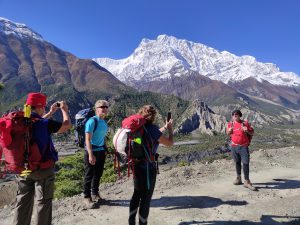
Originally from Nepal, I immigrated to the US with my parents, while continuing to be a Nepali citizen. I educated myself on Nepal’s society despite living abroad, and here I present an ongoing issue.
To begin this article, I propose a challenge for all of us. In no form is it strenuous; just an activity we do quite frequently. Let’s Search up: “Issues in Nepal.” Despite the diversity of issues, a leading problem we will likely find is women’s rights. It has been a concern for centuries; even though laws change, numerous harmful practices stay. Evidently so, the opportunities for women have been limited—something so fundamental, yet lacking. Indeed, we cannot let that continue. Nepal has to spark a shift to end gender-based inequality, so that women can freely pursue their ambitions.
Despite the level of protests, lobbying, and female lawmakers making an effort to improve the system, the progress has been extremely slow, especially for the younger generation. We want to see the change, but we feel as if it is not either not happening, or the positive changes on these issues are too slow.
To understand the persistence of this problem, We have to understand the roots. Historically, women have always been disregarded, existing as a marginalised group. Harmful practices like chhaupadi, the dowry system, and early marriages have deterred and prevented education amongst girls.
To this day, more specifically in rural areas, there is stigma around menstruation with fallacious beliefs that portray periods as taboo and impure. As a result, the patriarchy only grew stronger, with women feeling inferior and unmotivated to chase their goals.
Yet it did not stop—the societal standard for women to get married only intensified the issue. Countless women unwillingly began focusing on marriage and raising families rather than long term careers, and only recently have women begun to explore their dreams. Of course, it is okay to focus on family; it just is not okay to deprive women of the opportunity to pursue their own individual goals, which unfortunately still happens.
“This harmful tradition [chhaupadi] continues to inflict physical and psychological harm on countless individuals, particularly in the rural western regions.”—National Institute of Health (NIH) , 2024.
Many choose to overlook the issue, but the statistics are irrefutable. In science, women make up a mere 7.8% of researchers, according to UNESCO. That is alarmingly low, especially considering how half the population in Nepal consists of women. Consequently, gender stereotypes are preventing the presence of female role-models for young girls. We need to uplift women, not underrepresent them.
The underrepresentation in a multitude of other fields (e.g., law and engineering) only exacerbates the lack of inspiration for female students. As mentioned in a case study by the DLA Piper, only 12% of lawyers in Nepal are women, and as indicated by the number of women registered to the Nepal Engineers Council, they only make up 13% of engineers.
We are now left with one question: how can we encourage involvement? Of course, the inequality can’t be solved within a short amount of time. But with empowerment, patience, and recognizing their value, young girls and women are more likely to be involved in careers and gain opportunities that once weren’t available before.
Schools can teach about women who made a difference, families can stop enforcing gender stereotypes, and outdated practices can officially come to an end. These opportunities are necessary, not just for our generation, but for future ones.
























